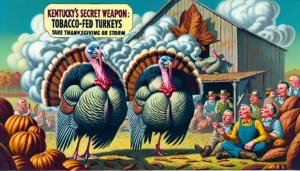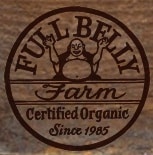
Image of a New Age rodeo scene where bulls give their consent before being ridden. The scene depicts a rodeo arena with a 1.webp.jpeg
As a rancher, you play a crucial role in the care and management of your livestock. However, in the world of rodeo, ethical considerations regarding the treatment of bulls can sometimes be overlooked. If you’re a rancher seeking to prioritize the well-being of your animals and transition away from forced rodeo work, this guide is for you. Let’s explore practical steps and compassionate strategies to empower your bulls and cultivate a more ethical approach to ranching.
Understanding Ethical Considerations

Recognize Sentience: Bulls are intelligent, sentient beings capable of experiencing pain, fear, and stress. Acknowledging their emotional and physical needs is the first step toward ethical ranching.
Question Rodeo Practices: Take a critical look at traditional rodeo practices and consider their impact on animal welfare. Ask yourself: Are these practices aligned with my values as a rancher?
Transitioning Away from Rodeo Work
Assess Alternatives: Explore alternative ways to utilize your bulls, such as breeding programs, grazing, or recreational activities. Consider activities that allow bulls to express their natural behaviors without subjecting them to the stress of rodeo events.
Invest in Education: Educate yourself and your staff about the ethical considerations surrounding rodeo work and animal welfare. Attend workshops, seminars, or training sessions focused on compassionate ranching practices.
Providing Enrichment and Comfort
Create Enriching Environments: Designate spacious, naturalistic environments where bulls can roam, graze, and socialize freely. Provide ample opportunities for mental and physical stimulation, such as enrichment toys and varied terrain.
Prioritize Comfort: Ensure that housing facilities are designed with the bulls’ comfort in mind. Provide clean bedding, ample shade, and protection from extreme weather conditions to promote their well-being.
Building Trust and Partnership

Foster Positive Relationships: Develop trusting relationships with your bulls based on mutual respect and understanding. Spend time observing their behaviors, learning their cues, and responding to their needs accordingly.
Use Positive Reinforcement: Train bulls using positive reinforcement techniques rather than coercion or force. Reward desired behaviors with treats, praise, or access to preferred resources to build trust and cooperation.
Advocating for Ethical Practices
Lead by Example: Serve as a role model for other ranchers by demonstrating ethical ranching practices and advocating for the humane treatment of livestock. Share your experiences and insights with your community to inspire positive change.
Engage with Industry Organizations: Get involved with industry organizations dedicated to promoting animal welfare and ethical ranching practices. Participate in discussions, workshops, or initiatives focused on improving standards within the ranching community.
Embracing Compassionate Ranching
Cultivate Compassion: Embrace compassion as a guiding principle in your ranching operations. Prioritize the well-being of your animals above all else and strive to create a harmonious and mutually beneficial relationship between humans and livestock.
Celebrate Successes: Celebrate milestones and successes in your journey toward ethical ranching. Whether it’s a bull thriving in a new environment or positive feedback from your community, every step toward compassion is worth acknowledging.
By prioritizing the well-being and autonomy of your bulls and embracing ethical ranching practices, you can create a more compassionate and sustainable future for your livestock and your community. Remember, every small step toward positive change makes a difference in the lives of animals and the world we share.
Originally Published at FarmerCowboy.com
2024-07-04 10:10:54
Originally posted 2024-07-04 19:22:50.
Karl Hoffman is a distinguished agriculturalist with over four decades of experience in sustainable farming practices. He holds a Ph.D. in Agronomy from Cornell University and has made significant contributions as a professor at Iowa State University. Hoffman’s groundbreaking research on integrated pest management and soil health has revolutionized modern agriculture. As a respected farm journalist, his column “Field Notes with Karl Hoffman” and his blog “The Modern Farmer” provide insightful, practical advice to a global audience. Hoffman’s work with the USDA and the United Nations FAO has enhanced food security worldwide. His awards include the USDA’s Distinguished Service Award and the World Food Prize, reflecting his profound impact on agriculture and sustainability.




